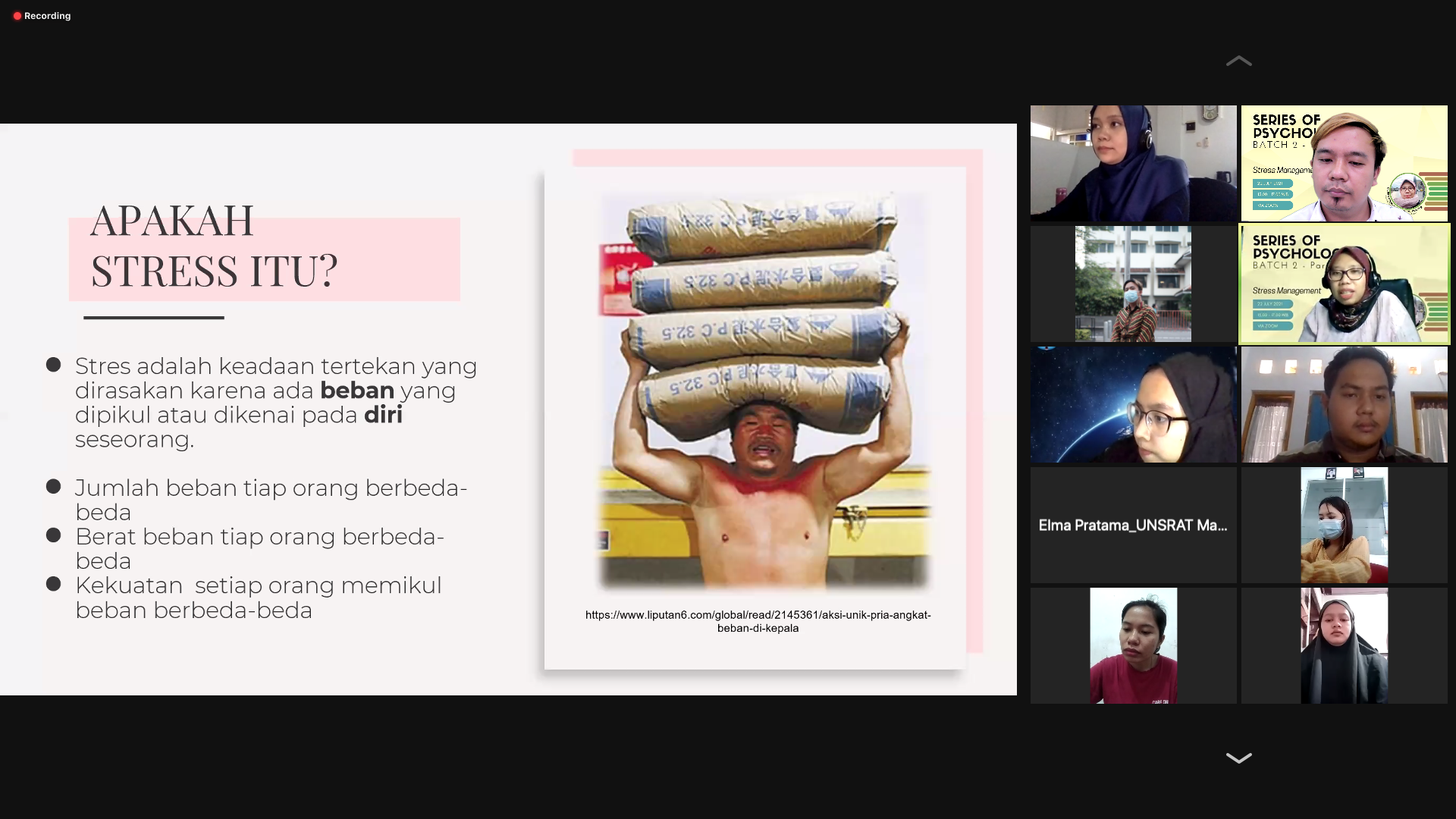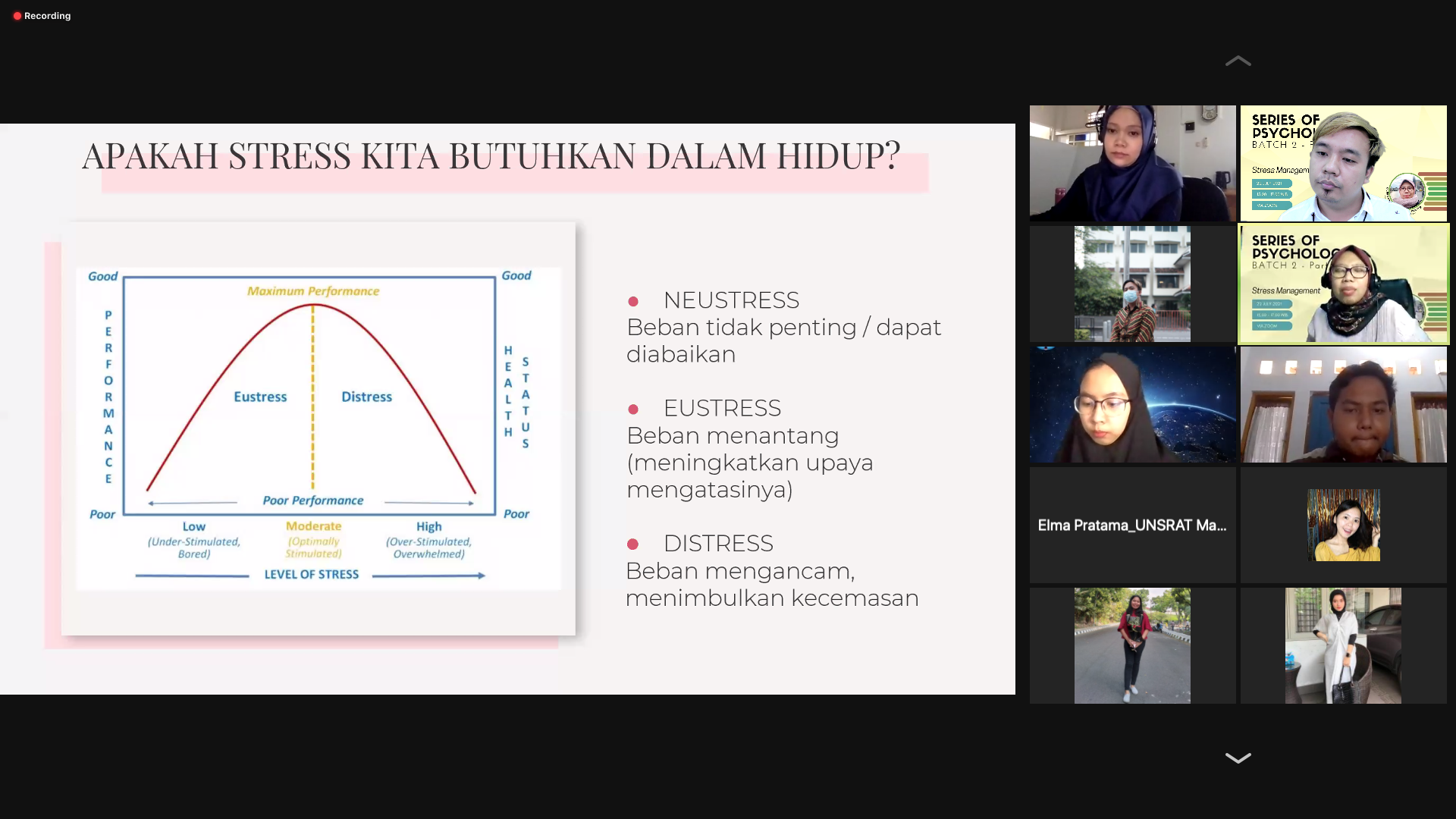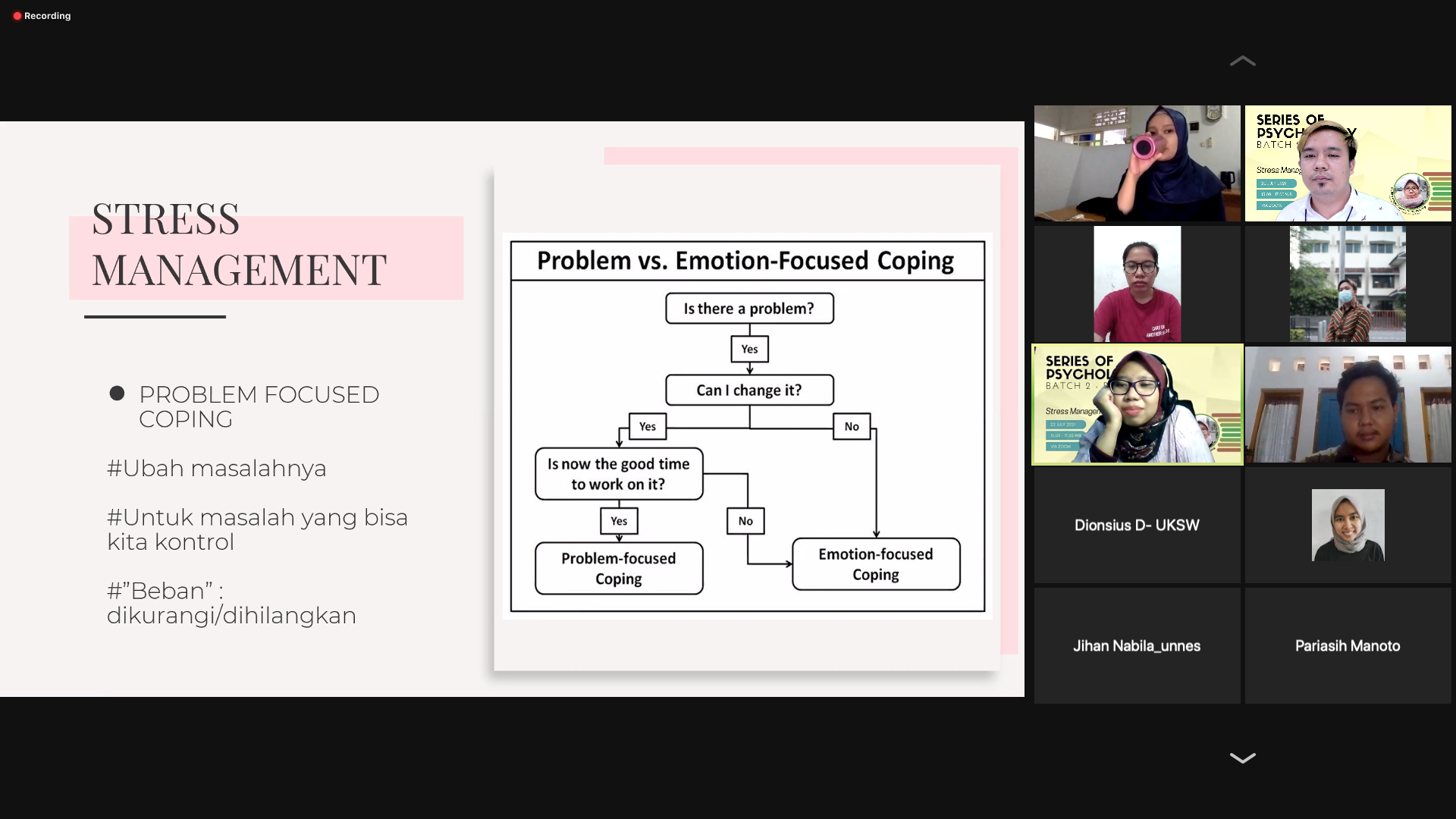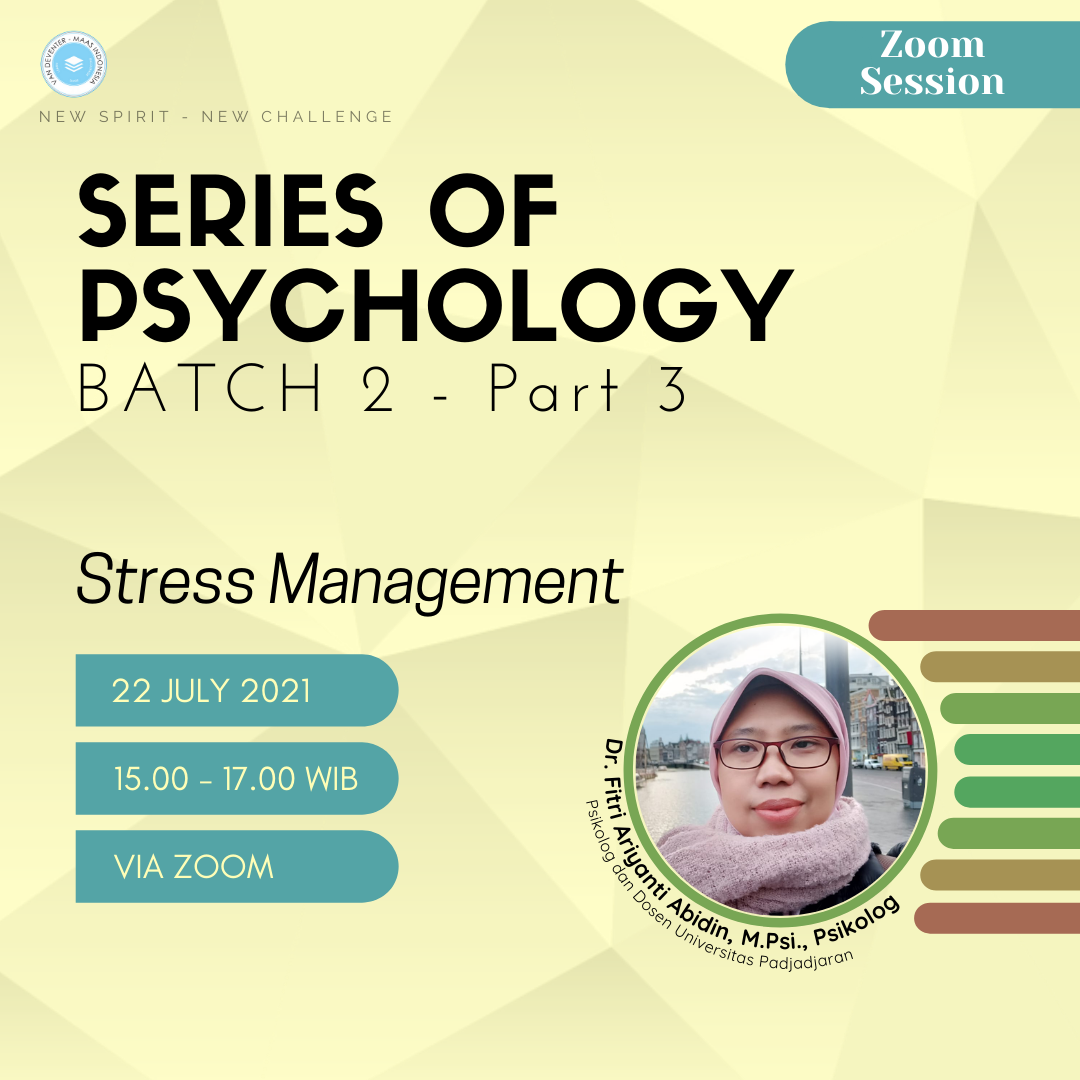Series of Psychology Batch 2 (Part 3): Stress Management
The third part of the Series of Psychology with Dr. Fitri Ariyanti Abidin was held on July 22nd, 2021, at 15:00 to 17:00. The session was started with the participants reflect on their last assignment in managing priority. Then, they were asked to make a self-report on their stress levels on the scale 1 to 10.

Stressors are subjective. Some may think that the final research project is a heavy stressor, while others may think it is just a mediocre stressor. So, we cannot compare ones’ stressors to other people’s stressors. The students were asked to jot down their current stressors on the Jamboard application. After mentioning their stressors, the students were asked to explain how they could notice that they feel stressed. Headache, insomnia, and hard to breathe are some of the stress signs that are mostly mentioned by the participants.

Yet, Ibu Fitri explained humans occasionally need stressors to motivate themselves. There are three types of stress, which are: unnecessary stress (Neustress), challenging stress (Eustress), and harmful stress (Distress). During the session, the participants were asked to identify their stress. They analyzed factors that increase or reduce their stress. Also, whether the stressors are routine or occasional. It is expected that the participants can apply the coping strategies whenever they are experiencing stress.

Finally, in coping with stress, Ibu Fitri suggested two types of stress coping strategies: emotion-focused coping or problem-focused coping. If we can change the stressors, we can try to minimize the problem/stressors. However, if there is nothing we can do to change the stressors, we should focus on calming our emotions with strategies that are most suitable for us. As the father of stress studies, Hans Selye, suggested, “It’s not the stressors that kill us, it is our reaction to it.” The final part of the series will be held on July 29 at 14:00. It is expected that those who are invited can join to learn how to manage anxiety.


